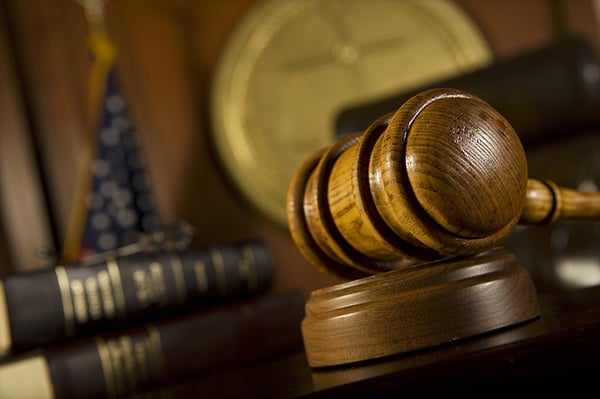What’s Important to Know About Virtual Trials

As the COVID-19 pandemic continues to unfold, the legal community has been forced to adapt and adjust to a new way of practicing law. Attorneys have incorporated technology into the daily minutiae of their practices, given that in-person events have largely shifted to a virtual format in most jurisdictions. While you may have already taken part in telephone court hearings or zoom depositions, you probably have not yet experienced a virtual trial.
It may be a hard concept to envision—however, with courts working diligently to lessen the backlog created by the COVID-19 shutdowns, conducting virtual and hybrid trials has become a necessity both to keep litigants and court officials safe and to keep the United States judiciary system running smoothly.
The following discusses the various ways in which jurisdictions have been preparing for virtual trials and outcomes of virtual jury trials that have already taken place, to help acclimate you to the ultimate virtual proceeding.
The Texas Pilot Trial
The first non-binding virtual jury trial took place in Texas state court in May 2020. The entire trial from jury selection to (non-binding) verdict took place over the videoconferencing platform, Zoom. The virtual jury selection process was live streamed on YouTube for the public to view but the rest of the trial was not made available. Technology concerns were at the forefront, as potential jurors were quizzed about the type of electronic device they would use during the trial.
Technological errors ranged from innocuous (one juror couldn’t figure out how to switch his camera from portrait mode to landscape) to irritating (another juror took a phone call on a break that lasted beyond the court-allotted time, causing a delay), to detrimental (two summoned jurors didn’t attend via Zoom call at all). However, these issues are easily avoidable with adequate preparation. In this case, the judge was able to create separate breakout rooms in the Zoom call that enabled the voir dire to move smoothly. Jurors were summoned for questioning in groups, while others waited in a separate “room.” The judge was also able to create a private breakout room when attorneys were asked to approach the bench.
The case is: Virtuwave Holdings LLC v. State Farm Lloyds et al., Case No.: 429-04266-2018, in the 429th District Court in Collin County, Texas.
The First Binding Virtual Trial
The first binding fully-virtual trial took place in Florida’s Fourth Circuit for Duval County in August 2020 and was a one-day damages trial that resulted in a $354,000 jury award for a strip club dancer who alleged she was beaten by club bouncers. Both the judge and the plaintiff’s attorney expressed that they were pleased with how smoothly the trial unfolded. The court preempted the expected technological errors by sending jurors detailed instructions on how to use Zoom on their respective devices. The court also collaborated with the closed Jacksonville Public Library to allow access for jurors to use the library’s high-speed internet and, if needed, court provided computers. The trial was not live streamed, but was uploaded after its conclusion and jurors’ faces were blurred to protect their privacy.
The case is: Cayla Griffin v. Albanese Enterprise Inc., Case No.: 16-2019-CA-1555 in the Circuit Court, Fourth Judicial Circuit, in and for Duval County, Florida.
California Asbestos Zoom Trials
Aside from technological issues, some virtual trials have been plagued with issues surrounding, inattention. On September 3, 2020, the Superior Court of California in Alameda County successfully completed the state’s first Zoom jury trial between Honeywell and a plaintiff who alleged that he was exposed to asbestos from Honeywell brakes during his janitorial employment, which caused him to develop mesothelioma.
The trial began remotely on July 27, 2020. Just days after the proceedings began, the defendant filed a notice of irregularities and detailed that jurors were inattentive and moving about while the court was issuing instruction. Other jurors were said to be clearly working on other tasks and another juror was reportedly in bed during the proceeding.
This particular case was riddled with technical errors. Outside of the juror issues, the original judge assigned to the case, Judge Frank Roesch, failed to disable his microphone before having a side conversation with his clerk about his personal experience changing brakes and being exposed to asbestos. Once Judge Roesch became aware that his conversation had been overheard, he recused himself from the trial and was replaced by Judge Jo-Lynne Q. Lee. As the trial progressed, jurors were admonished by Judge Lee to pay attention and some jurors experienced issues with internet connections. The trial ultimately ended in a defense victory.
In a similar trial in Alameda County Superior Court, defendant Metalclad Insulation was rejected in its motion for a mistrial after a paralegal, assigned by the defense to monitor jurors, reported observing the plaintiff “chatting” with jurors about decorative Zoom backgrounds while the attorneys and judge were in a breakout room. The judge opined that while he saw the communication between the jurors and the plaintiff as improper, he didn’t view it as prejudicial as the parties were simply speaking about the novelty of the video conferencing platform and were sharing Zoom backgrounds of the Golden Gate Bridge.
Ultimately, the jury found in favor of the plaintiff, a retired Navy admiral, who claimed that Metalclad was liable for negligently failing to recall or warn about the risks of using insulation containing asbestos, which the plaintiff was exposed to while in the Navy. The plaintiff was awarded a $2.5 million verdict.
The cases are:
Ricardo Ocampo et al. v. Honeywell International Inc., Case No.: RG19041182, in the Superior Court of the State of California, County of Alameda.
Ronald C. Wilgenbusch et al. v. Metalclad Insulation LLC., Case No.: RG19029791, in the Superior Court of the State of California, County of Alameda.
$412M Auto Accident Verdict via Zoom Trial
On October 2, 2020, a jury in the Circuit Court of the Second Judicial Circuit for Gadsden County Florida awarded a motorcyclist and his family a record-breaking $411.7 million in a damages-only Zoom trial. The plaintiff, Duane Washington, sustained life-altering injuries in 2018 when he swerved his motorcycle to avoid an impending crash ahead of him and subsequently struck a truck stopped in the emergency lane.
This case proves that large jury verdicts can be achieved in Zoom trials and speaks to the ability of the judiciary to continue to process cases through to successful conclusion during the pandemic.
The case is: Washington v. Sinclair Broadcast Group Inc. et al., Case No.: 18000861CAA, in the Circuit Court for Gadsden County.

Counsel Financial provides working capital credit lines exclusively for the plaintiffs' bar in all states except California, where credit lines are issued by California Attorney Lending.


